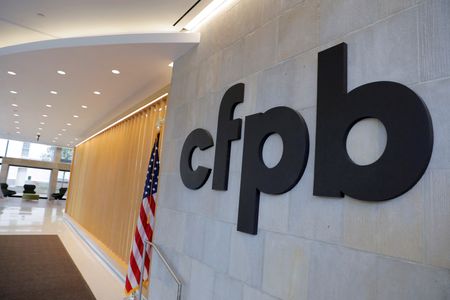 1
1 1
1
By Niket Nishant
(Reuters) – A U.S. consumer watchdog’s proposal to slash late fees on credit cards is facing a rough road ahead as lenders gear up for what could turn out to be a fierce battle with the agency, industry experts and analysts said.
Last month, the Consumer Financial Protection Bureau said it was looking to curb such “excessive” fees, which cost American consumers about $12 billion each year, according to the agency’s estimates.
Credit card issuers that have a bigger exposure to subprime customers or private label cards, which can only be used with a specific brand, could be the worst hit, with revenues expected to decline by mid-to-high single-digit percentage points, ratings agency Fitch estimates.
Fitch identified Discover Financial Services, Capital One Financial, Synchrony Financial and Bread Financial Holdings among those at risk.
Discover declined to comment. The others did not respond to requests for comment.
The American Bankers Association (ABA), which represents Wall Street banks as well as regional lenders, has already warned that the CFPB’s proposal “flagrantly violates federal law”, according to a statement shared with Reuters.
“If the proposal is enacted, credit card issuers will be forced to adjust to the new risks by reducing credit lines, tightening standards for new accounts and raising APRs (annual percentage rates) for all consumers, including the millions who pay on time,” ABA president and Chief Executive Officer Rob Nichols said.
Credit card companies typically rely on late fees to act as a bulwark against spending volumes tapering off when the economic environment is tough.
If the CFPB’s rule is implemented in its current form, it could reduce those fees by as much as 75% annually, the agency said.
“It disregards administrative law,” advocacy group The Bank Policy Institute said, adding the CFPB had not provided a “reasonable basis” for the move.
Analysts also expect a tough pushback from the industry. Michael Taiano, senior analyst at Fitch Ratings, said card companies could potentially resort to legal action to delay enforcement of these rules.
“They could also respond by introducing other fees, like statement charges, which would charge a customer every time they request a statement,” Taiano said.
CFPB will seek pubic comments on the proposed rule until April 3, it has said.
(Reporting by Niket Nishant in Bengaluru; Editing by Krishna Chandra Eluri)